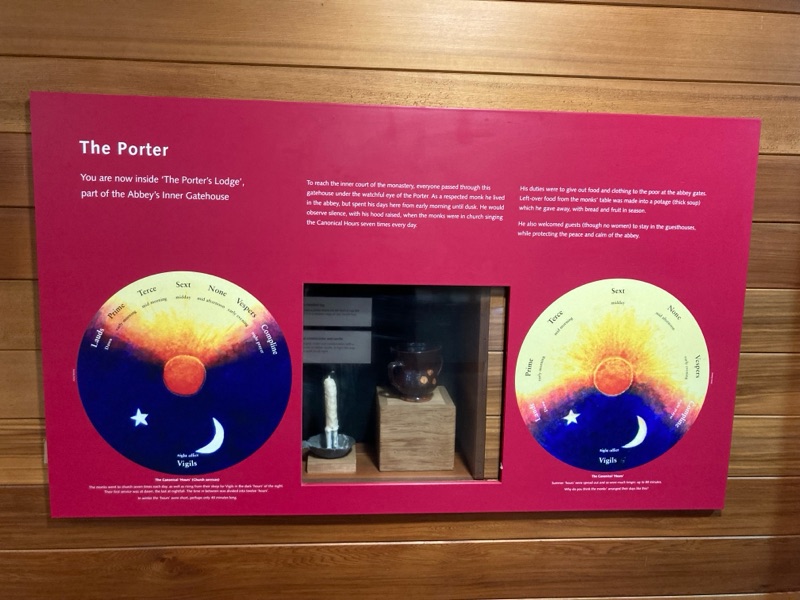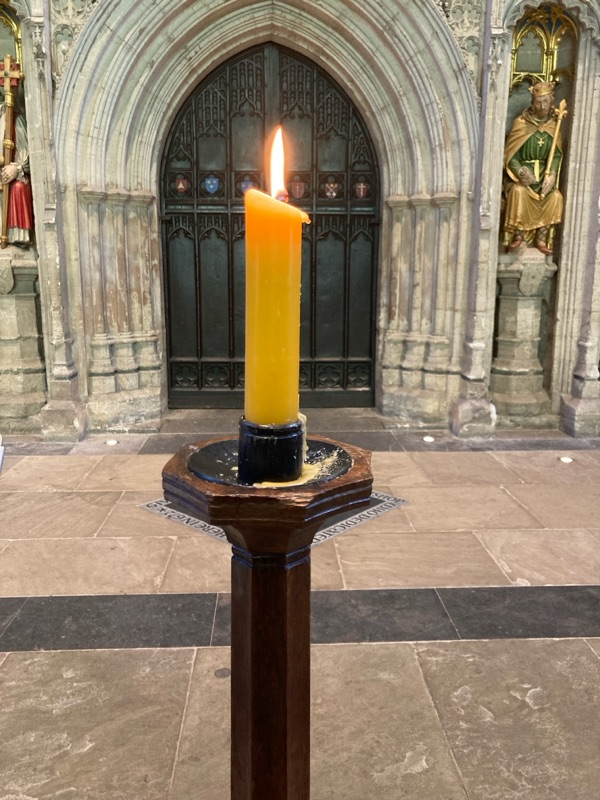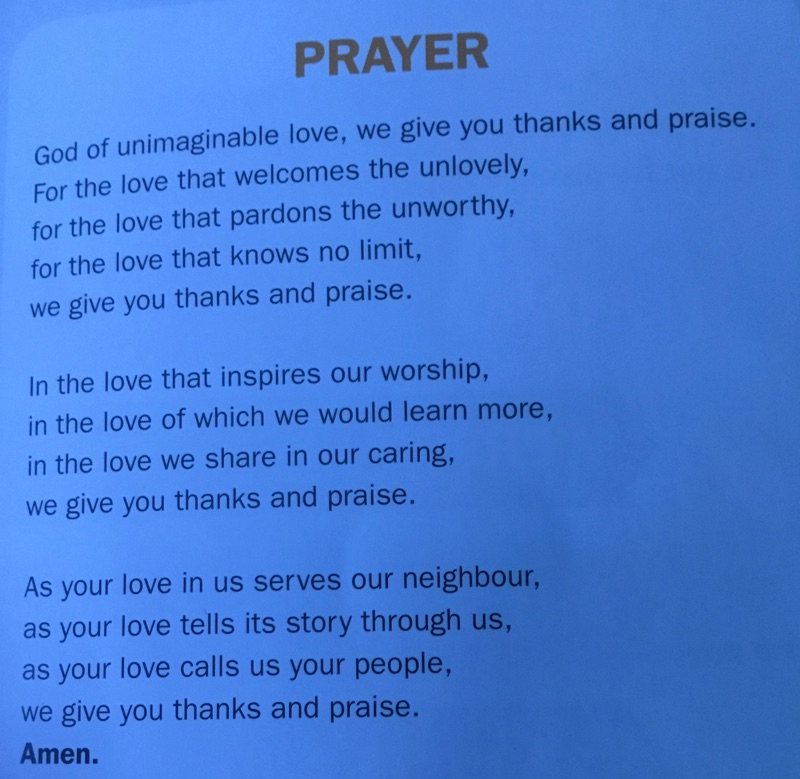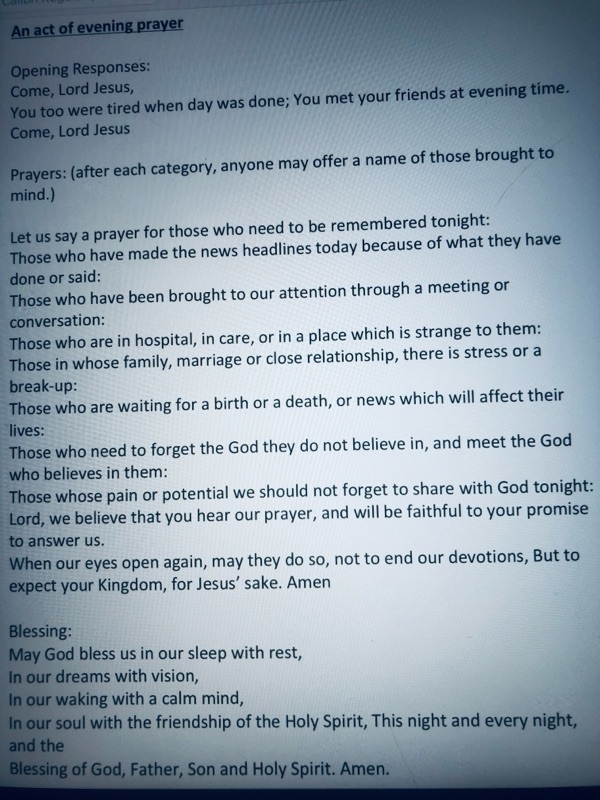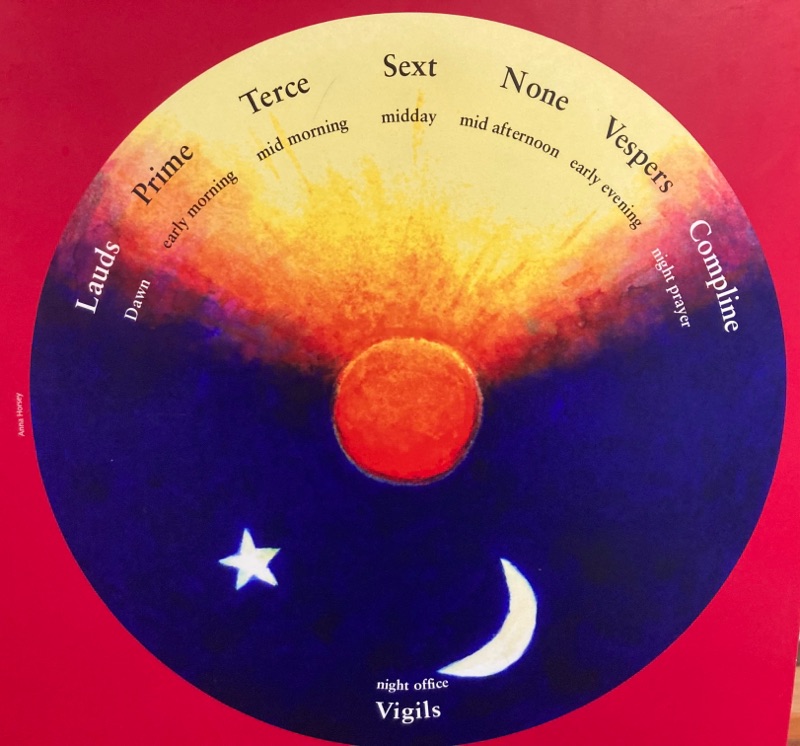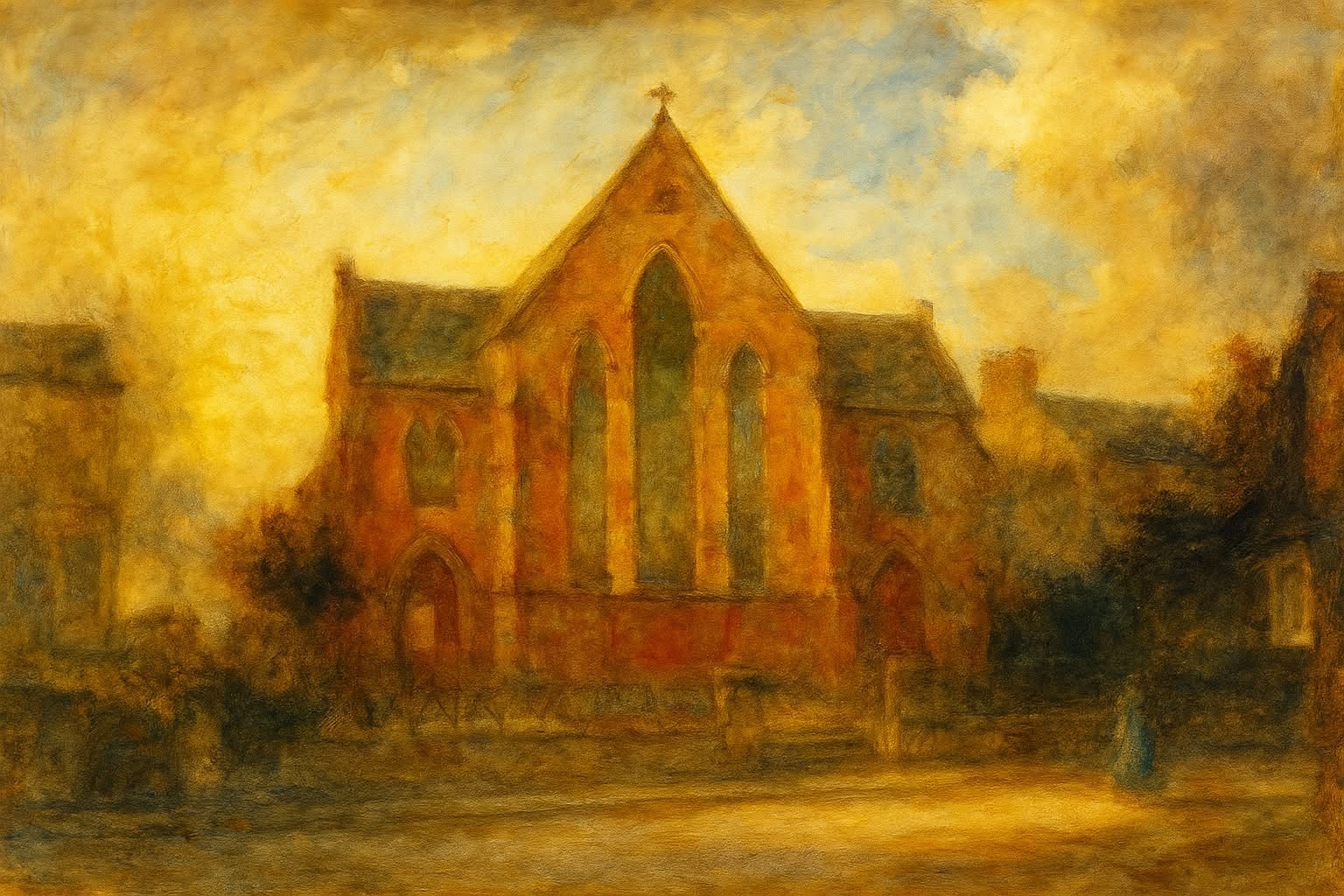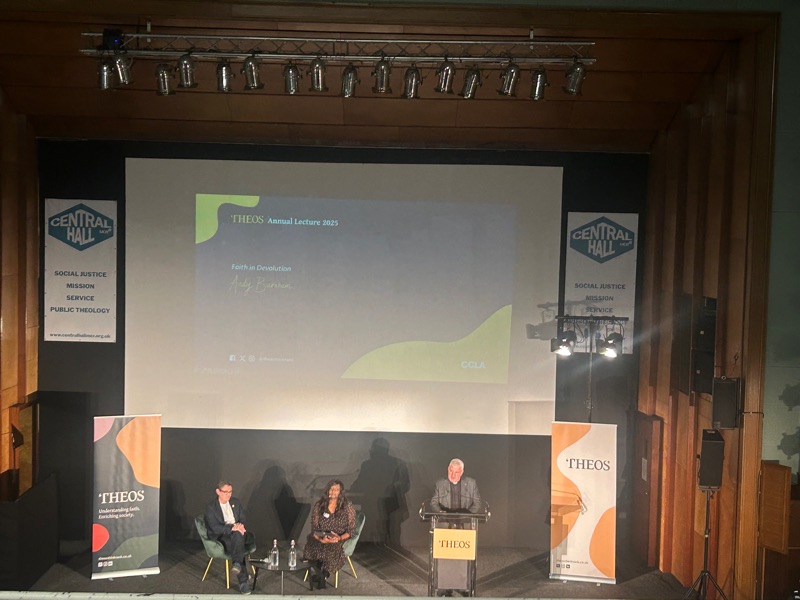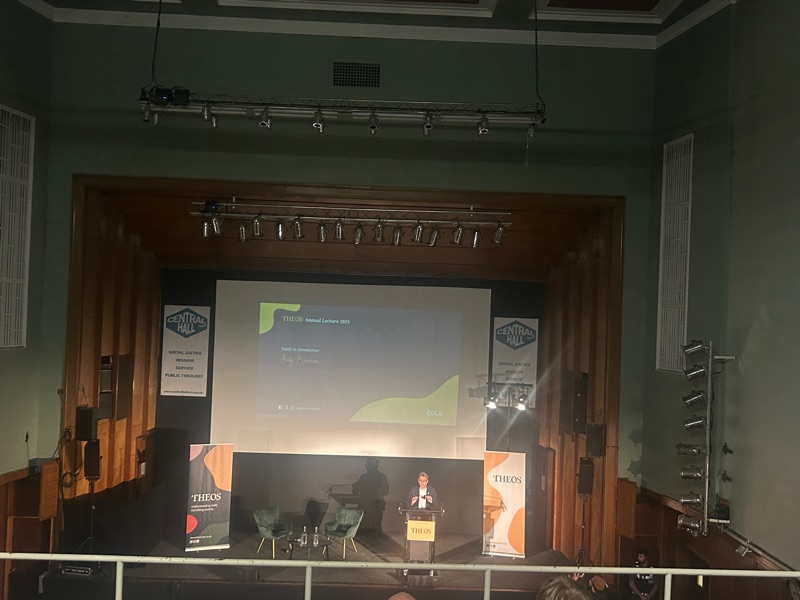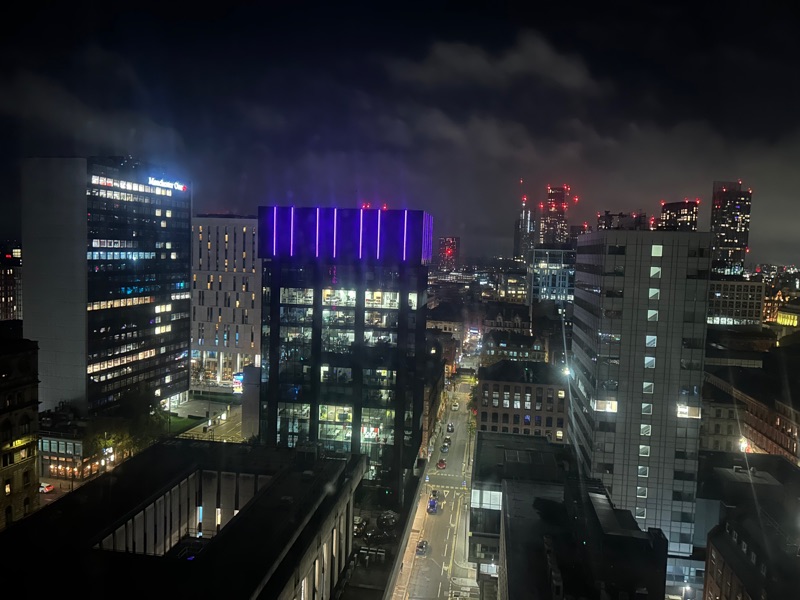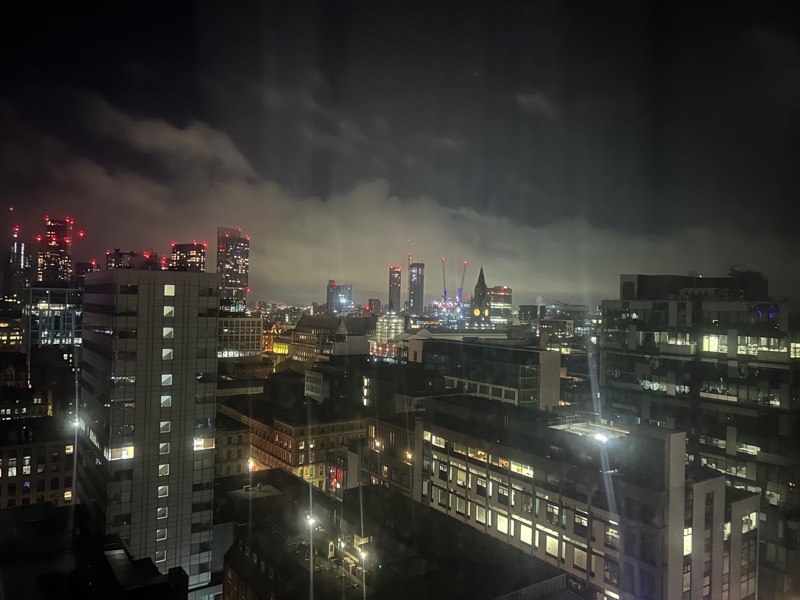If there's one thing I can't stand, it's snobbery and one-upmanship. People trying to pretend they re superior. Makes it so much harder for those of us who really are.
Dame Patricia Routledge, the actress passed away the other week. Her most famous character was the wonderful Hyacinth Bucket. That character enjoyed being superior.
I loved Keeping Up Appearances, mostly because when in the car Hyacinth and her husband Richard, were my Auntie Doris and Uncle Bob.
“Richard.... Drive very slowly past number 23, I want her to see my hat.”
Auntie would love to play the superior card. Auntie was a bit of a snob. There was a bottle of Tia Maria in the cupboard every year for Christmas but you weren’t allowed to drink it, there was a 1977 Queens Silver Jubilee soap on the toilet, but you weren’t allowed to use it, she’d clean her skirting board with a toothbrush and every Christmas Day the lunch had to be eaten, washed up and everything put away in time to her to change into her posh frock to see the Queen at 3, as though the Queen could see her!
I wonder who has the biggest ego in the world? Maybe it’s a certain President who is building a ballroom he will name after himself. President Trump has been signing Bibles, as if he wrote it... and the signed copies sell for $1000. ... of course all the parts about love and compassion have been removed.
All the Bible verses that talk about compassion and justice are redacted. Everything about welcoming the stranger, caring for widows and orphans, and loving enemies is gone. The 2000 verses that mention the poor and vulnerable are blacked out. There isn't much left.
Imagine Mrs Bouquet and Donald Trump in church! We don’t any of it here but there are superior people in churches! They say their prayers and are better than you! The only Christian in the church. We went to Snaith the other summer and found the Methodist Church. In there, there were boxed pews at the back, which you paid pew rent to have, and they were expensive and private and you went through a private door to get into them without going down the aisle to see the riff raff. There were free seats, quite plain and very uncomfortable in the balcony, as far away from the minister as possible as though we really didn’t want poor people there. And Methodist theology says all are welcome and equal! Lord have mercy.
Imagine two people coming into our church this morning. One is a Pharisee and one is a tax collector. Would we seat the Pharisee at the front so he could be seen and the tax collector, not really one of us at the back of the balcony?
Jesus tells a story that would have shocked his listeners. Two men go to the temple to pray. One is a Pharisee – respected, religious, righteous by every outward measure. The other is a tax collector: reviled, seen as corrupt, a collaborator with oppression.
But in Jesus’ telling, it is not the respected religious man who goes home justified, it is the one who stands at a distance, beats his chest, and simply prays: “God, be merciful to me, a sinner.”
The tax collector shows up in all his vulnerability, and trusts that God will
meet him there. And that, Jesus says, is the posture that opens the door to grace.
The Pharisee, on the other hand, may be doing all the right things – but his prayer is really a performance. He assumes the correct position for prayer: he stands. Yet, he stands by himself, setting himself apart from others. But not too far. From his vantage point, he can scan the crowd of worshippers, can even spy a tax collector hunched over on the edge of the assembly. The Pharisee chooses a place with good sight lines, somewhat apart from others, where he can see and be seen. Chin up, eyes casting about the room, he offers prayers to God that are meant to be overheard.
In his prayers, he uses two age-old strategies to puff himself up. One, he brags about himself. And two, he puts others down. Sound familiar?
Let’s start with the bragging. The Pharisee points out to the Lord God Omnipotent, what the Lord surely already knows: he fasts twice a week and gives a tenth of all his income. One wonders for whose benefit he says these things. For God? Hardly. For the other worshippers? He probably thinks so. For himself?
He’s talking to himself more than to God. He’s measuring his worth by comparing himself to others. And that kind of pride, even when wrapped in religion, closes us off – from others, from truth, and from grace.
He assumes the correct position for prayer: he stands. Yet, he stands by himself, setting himself apart from others. But not too far. From his vantage point, he can scan the crowd of worshippers, can even spy a tax collector hunched over on the edge of the assembly. The Pharisee chooses a place with good sight lines, somewhat apart from others, where he can see and be seen. His eyes casting about the room, he offers prayers to God that are meant to be overheard.
He wants God and everyone within earshot to know about his super-duper observance, which goes well beyond that of the hoi polloi.
Second on the scene, we meet the tax collector. He also stands for prayer, but with lowered eyes. He would not even look up to heaven. He stands not only apart, but also far off, not wanting to be noticed.
Unlike the Pharisee who assumes a position from which to see and be seen, the tax collector tries to fade into the background. There, he beats his breast as a sign of repentance.
And rightly so, many like the Pharisee probably thought. Tax collectors were contemptible. Not only did they collaborate with the Romans, but they also cheated their fellow Jews. They were Jews who worked for the Romans, so this made them traitors. People resented paying taxes to the foreigners who ruled over them. Tax collectors were not paid an actual wage by the Romans; they were expected to take extra money and keep some for themselves. Many tax collectors were dishonest and abused this system by taking far too much.Lumping him in with thieves, rogues, and adulterers was not so far-fetched.
When the tax collector does speak, he utters a simple cry for mercy: “God, be merciful to me, a sinner!” In the Greek text, the tax collector’s entire petition consists of six words. By contrast, the Pharisee’s speech is twenty-nine words, four times as long. The Pharisee boasts about himself and his deeds, using the word “I” four times. The only thing that the tax collector says about himself is that he is a sinner. Unlike the Pharisee who passes judgment on all manner of people, the tax collector passes judgment only on himself.
But the tax collector does one thing the Pharisee doesn’t. He asks for God’s mercy. The Pharisee basically gives God a status report, a curriculum vitae, highlighting his extraordinary piety and practice. He says the words, “God, I thank you,” but in effect, his speech really says, “God, you’re welcome.” What’s God’s mercy have to do with it? According to the tax collector, everything. It’s the only thing he asks for.
That day, the tax collector, not the Pharisee, went home justified.
Imagine the Pharisee’s face. No wonder he and his community wanted rid of Jesus. The Pharisee had his hands full of self-righteousness. The tax collector had empty hands.
But it was the tax collector who went home justified. He was declared righteous in God’s sight. No one will ever be counted righteous in God’s sight by trusting in himself.
William Barclay wrote, “The Pharisee did not really go to pray; he went to inform God how good he was…. No one who is proud can pray. The gate of heaven is so low that none can enter it save upon [their] knees.”
So, what’s this parable about in Boroughbridge in October 2025?
That Christianity isn’t about swank and empty words, going through the motions. Going to church to be seen and getting it done with. A supernumerary I had in my first Circuit in Stalybridge used to say to me about people who wanted power and to be noticed for being better than everyone else “that isn’t Christianity young man, it’s churchianity!” It’s like those ministers who brag how busy they are and never take a day off. Look at us, we work harder than you and pray more effectively than you.
All are welcome and actually those who get it are those who come to find God and say I don’t get it, I have questions but I’m open to your providence and your hand blessing me. There are people dipping their toe into church to try and make sense of life at the moment, and we need to be there for them.
Dietrich Bonhoeffer in the last century said the Gospel is frankly hard for the pious to understand. Because the Gospel confronts us with the truth saying you are a sinner, a great and desperate sinner. Now come as the sinner you are to the God who loves you madly.
Who do we welcome? All are welcome. Empty words don’t impress God. An open mind and heart God fills with his joy and peace.
